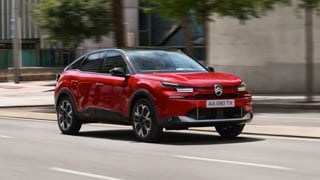Only one in 10 new car sales could be diesel in as little as five years, says a leading academic.
Currently, one-in-four of new cars sold is powered by the fuel, a dramatic decline from the parity with petrol it enjoyed just a few years ago.
Its popularity is also on the wane in the company car market, where it has traditionally dominated thanks to its tax-friendly CO2 performance.
New figures show that the proportion of diesel cars on the FN50 fleet – the UK’s top 50 leasing companies by risk fleet size – fell from almost two-thirds (63.4%) to close to half (50.5%) over the past 12 months.
In terms of vehicles they had ordered in the past year, the flight from diesel was still more pronounced. Almost half of the cars ordered in 2019 were petrol (47.6%), while only two-fifths (38.8%) were diesel.
David Bailey, Professor of Business Economics at the Birmingham Business School, said: “There seems to be no end to the decline in diesels.”
Overall, diesel new car sales are down by more than a fifth in the past year. Some 515,000 units have been sold year-to-date, compared with 650,000 during the previous 12 months, data from the UK automotive trade body, the Society of Motor Manufacturers and Traders (SMMT), shows.
Forecasters say that, with the sharp falls seen in the sale of new diesel cars since 2017, it could lead to an undersupply of used vehicles in 2020 and 2021, which would help sustain residual values. However, it’s unclear whether the decline in new diesel car sales will be mirrored in the used car market. The most recent figures from the SMMT show that demand for used diesels grew by 1.4% in the third quarter, with some 858,442 changing hands.
“A big shift away from diesel is still taking place,” said Bailey. “In late 2015, diesel accounted for more than 50% of the market, by March last year it was down to 32% and it has fallen further since then.”
The UK is not alone in turning its back on the fuel; its decline is being seen across Europe. In the key market of Germany, diesel’s share has fallen below 30% from having accounted for half the market and to a similar level in France, where three-quarters of new car sales were once diesel.
Bailey said: “We are seeing this continuing decline and, while I originally thought the market share for diesel by 2025 would be down to 15%, I now think that’s quite optimistic – it may be as low as 10%.”
Despite its popularity in Europe, diesel has not enjoyed similar market penetration in other countries. “It’s negligible in North America, it’s only 4% at best in China and virtually insignificant elsewhere,” he said.
“If you go back to the turn of the century, diesel as a share of the market in Europe was only 10-15%. We then gave (the fuel) loads of tax breaks, because we thought it was good for the environment.”
Dieselgate followed however, and concerns over the fuel’s impact on air quality has put its market share on a downward trajectory.
Bailey told delegates at a recent Vehicle Remarketing Association (VRA) seminar the trouble is “people are completely freaked out over diesels”.
He said: “They are concerned about falling resale values, they are worried about tighter regulations in cities, higher taxes and its impact on the environment.”
He says Government policy has not helped either, labelling it a “complete shambles”.
“One part of Government has been saying ‘clean diesels are good’, while another part whacks a load of tax on them.”
Government has, however, introduced tax breaks for diesel company cars, which meet strict emissions limits defined by the RDE2 standard.
Company car drivers are exempt from the 4% benefit-in-kind (BIK) diesel surcharge, while fleets benefit from not having to pay the higher first-year rate of VED on new diesel cars.
The NOx limit for the RDE2 standard, which is measured on the road, is up to 1.43 times the Euro 6 lab limit of 80mg/km for diesel and 60mg/km for petrol. Cars achieving this limit are labelled Euro 6d.
Cars achieving RDE1, which allows for a margin of error two times the actual limit, are classified as Euro 6d-temp.
RDE2 will apply to all new registrations from January 1, 2021, before the margin for error – the conformity factor – is removed by 2023.
Peter Golding, managing director at FleetCheck, believes that 2020 could turn out to be a make or break year for diesel, with the success of Euro 6d cars key. However, he acknowledges the outlook is not promising when Bristol’s proposed diesel city centre car ban will not apply to older petrol vehicles, with potentially worse emissions than the latest RDE2 diesels.
“RDE2, effectively, puts diesel on a roughly equal footing with petrol from an emissions point of view,” he said. “The question is whether everyone from legislators to the general public are willing or able to make that distinction.”






















Login to comment
Comments
No comments have been made yet.